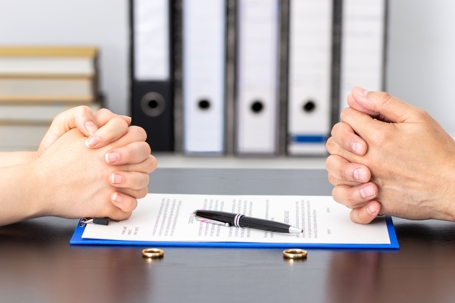As a Certified Family Law Specialist in Santa Barbara, I often see clients feel overwhelmed by the prospect of a divorce trial, especially when it comes to testifying and being cross-examined. While it's natural to feel some anxiety, thorough preparation can significantly boost your confidence and effectiveness on the stand. Cross-examination is a critical part of any divorce trial, where the opposing attorney will question your testimony and challenge your evidence. Here's how you can prepare to navigate it successfully in a Santa Barbara courtroom.
1. Understand the "Why" Behind Cross-Examination
The primary goal of cross-examination is to test the accuracy, reliability, and credibility of your testimony. The opposing counsel will try to highlight inconsistencies, expose weaknesses in your statements, or even try to discredit you or your claims. Knowing this helps you anticipate the types of questions you might face.
2. Know Your Case Inside and Out
This might seem obvious, but it’s foundational. You need to be intimately familiar with all the facts of your case, including dates, financial details, property descriptions, and any agreements or disagreements. The more you know, the less likely you are to be caught off guard. This includes:
- Statistical Facts: Date of marriage, date of separation, length of marriage, and information about any minor children.
- Disputed Issues: Clearly identify what issues are still unresolved and will be decided at trial (e.g., spousal support, property division, child custody).
- Your Position: Understand your legal arguments and how the law supports your stance on each issue.
3. Organize Your Evidence
Evidence, whether documents or witness testimony, is crucial. For documents (exhibits), make sure they are well-organized and easily accessible. Many attorneys use a trial notebook with all notes and evidence outlined. Have three copies of every exhibit: one for you, one for the court, and one for the other party.
4. Prepare for Your Testimony (and Cross-Examination) with Your Attorney
Your attorney will work with you to prepare for direct examination (when they ask you questions) and, crucially, for cross-examination. This involves:
- Anticipating Questions: Your attorney will help you anticipate the questions the other side might ask.
- Practicing Your Responses: Rehearse your answers to ensure they are clear, concise, and truthful.
- Understanding the Scope: Be prepared for questions about financial documents, bank statements, email communications, and text messages relevant to the issues at hand, particularly those related to custody or visitation.
- Focusing on the Facts: During cross-examination, stick to the facts. Avoid offering opinions or volunteering information not directly asked for.
- Maintaining Composure: It's normal to feel emotional, but try to remain calm and composed. Testifying with too much emotion can undermine your credibility.
- Honesty is Key: Always tell the truth, even if it feels uncomfortable. Attempting to mislead the court can have severe consequences. If you don't know the answer, it's okay to say so.
5. Consider Witnesses (Including Experts)
If you have witnesses, discuss their testimony with them in advance. For expert witnesses (e.g., forensic accountants, child psychologists, vocational evaluators), ensure you understand their reports and the basis of their opinions.
- Investigate Adverse Experts: If the opposing party has an expert, your attorney will conduct thorough discovery to understand their qualifications, opinions, and methodology. They may even recommend hiring a consulting expert to review and critique the adverse expert's report, identify weaknesses, and help prepare cross-examination questions.
- Understanding Expert Admissibility: For expert testimony to be admissible, it generally must concern a subject matter beyond the average layperson's knowledge, and the expert's field and methods must be reliable and tested.
6. Attend a Trial (If Possible)
The California Courts Self-Help Guide suggests watching a divorce trial, especially if you can observe a trial with the same judge who will preside over your case. This can be incredibly helpful in understanding:
- The courtroom environment.
- How witnesses testify.
- What cross-examination is like in practice.
- How documents are presented to the judge.
You can often find listings of trials on the Santa Barbara Court's website or by asking a court clerk. The Santa Barbara Superior Court also provides "Trial Protocols" that can offer insight.
7. File Your Trial Brief
At least five days before your trial, you must prepare, serve, and file a trial brief with the court. This document provides the judge with basic facts, a summary of disputed issues, a list of witnesses, and any legal arguments. The Santa Barbara Superior Court offers a "Trial Brief" template.
By taking these steps, you can walk into your Santa Barbara divorce trial feeling much more prepared and confident in facing cross-examination. Remember, your attorney is your guide throughout this process, and their expertise is invaluable in preparing you for success.

